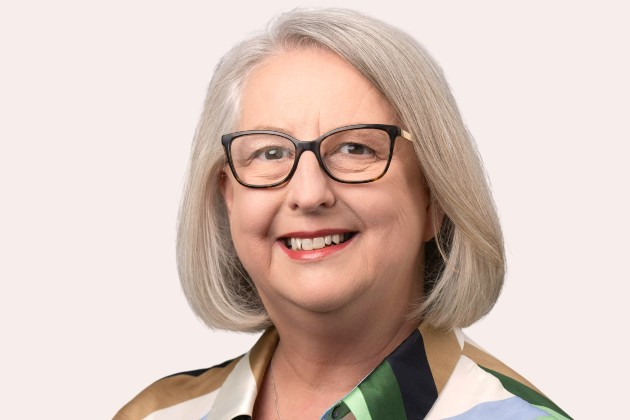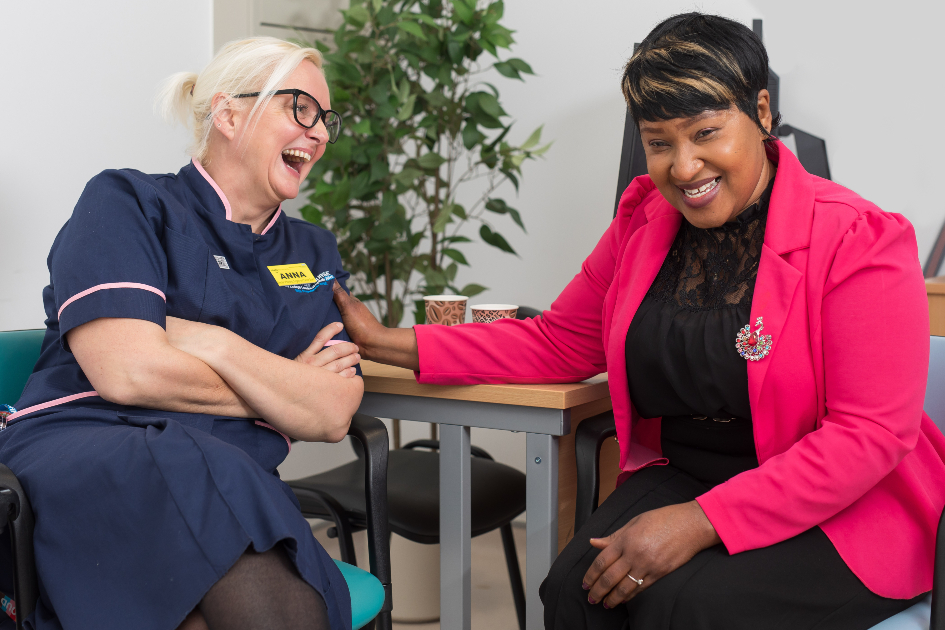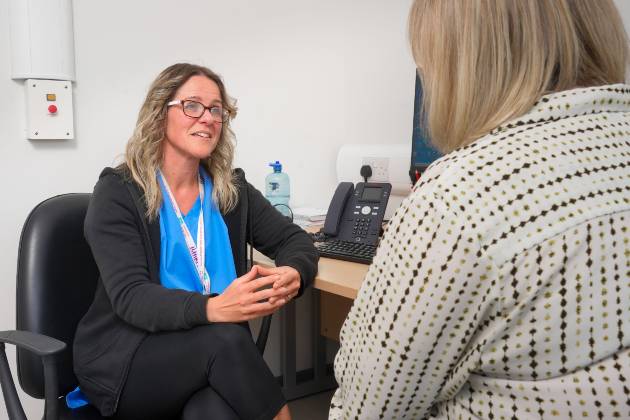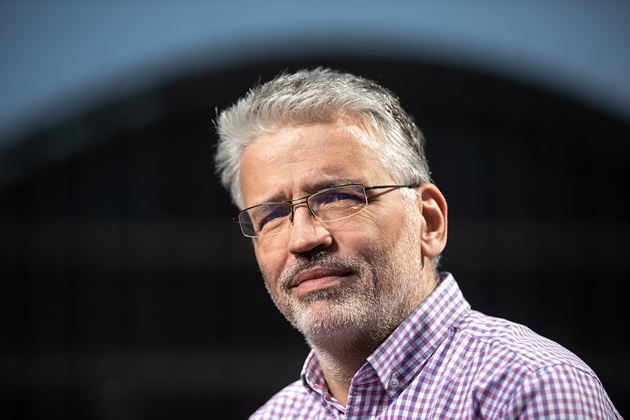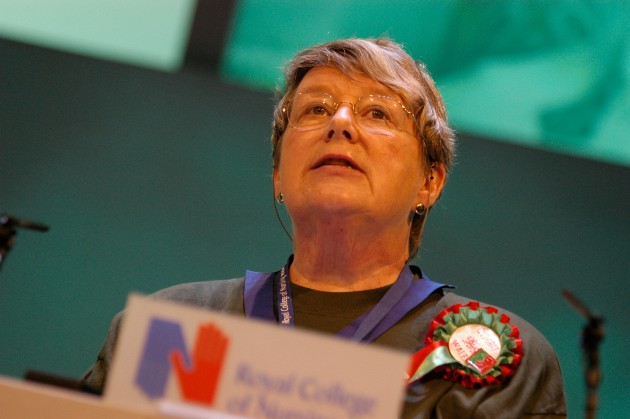With a prestigious academic reputation and a current role as professor of modelling (working on the modelling of health care systems), the RCN deputy president’s background may come as a surprise to some.
Alison Leary grew up on a council estate in south-east London and spent 10 years as an engineer before she went into nursing. She’s presented at World Health Organization conferences, served on the National Cancer Action Team, been a trustee of several charities and was Chief Nurse at St John Ambulance for three years. She’s also been a commercial modeller and mathematician.
“I was into science at school,” she recalls. “When I left, I got an engineering apprenticeship and worked in safety critical industries before moving to biomedical engineering in the NHS.
“There’s more crossover to nursing than many realise. It’s about the application of theoretical knowledge to a real-world problem which matters to people.”
A standing ovation from football fans
Alison says her most memorable achievement was when she worked as clinical lead at Millwall Football Club.
“For 23 years I worked with a great team, and we had an opportunity to influence national policy,” she says.
Following the tragic events that took place at Hillsborough Stadium in 1989, every English Football League team was required to have a medical service. Many assumed these were put in place to manage major incidents, but Alison and her team made changes that would have an impact on lives throughout England.
We tailored the service we provided to meet the needs of the population we served
“We did an analysis that found that people who present at football grounds typically don’t go to medical practitioners or practices. There were a lot of men at our games who were self-employed, for example, and didn’t have time to see their GPs. So, we got more proactive about public health.
“We saw a lot of people with long-term conditions, so we started to offer services such as blood pressure checks before and after games and worked with charities such as Prostate Cancer UK to raise awareness of symptoms.
“As a team we worked with paid staff and volunteers to design the required staffing for the service. We had to get the mix right. We hired GPs instead of only emergency response staff. We tailored the service we provided to meet the needs of the population we served.”
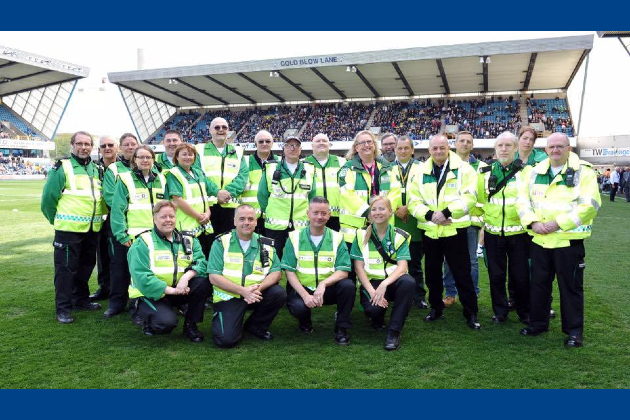
Alison says the support of the club, who wanted the service to be great, made the difference.
“Staff from other clubs came to see what we were doing, and our model was picked up by the Sports Ground Safety Authority. It’s now used in the English Football League in the Guide to Safety at Sports Grounds [also known as the Green Guide].”
It’s a 90-minute game but we’d be there for four hours
The team’s work started way before kick-off, sometimes with popular health promotion stands in the car park.
“It’s a 90-minute game but we’d be there for four hours. Every season I worked there we picked up at least one person with an undiagnosed cancer, and many others with serious illness. We had the time to take their history, which you don’t always have in the NHS.”
In 2019, Alison was appointed Member of the Order of the British Empire (MBE) for services to spectator safety and medical care, but she's quick to credit the team she worked with, recognising their range of skills and experiences.
“Some of the volunteers were quite young but have gone on to have careers in health and social care. Many are still in contact with me today; it’s a lovely legacy to have.”
She also remembers the crowd showing their appreciation after she resuscitated a supporter in the stands the previous week.
“I was one person in the team, and I didn’t want applause. But our team getting a standing ovation from Millwall supporters is my biggest career achievement. They’re a hard bunch to please," she says.
The work ahead in nursing
Now a professor of modelling, Alison uses her skills, experience, and more recently her election as RCN deputy president, to influence key nursing discussions.
“One of the biggest issues in nursing is the retention of the skilled frontline workforce,” she says.
“Governments promise to recruit more nursing staff, but they’re still leaving. We need to focus not just on numbers but also consider experience and qualifications. If we don’t get this right, we’re not supporting the next generation properly.
"Many newly registered nurses who faced the challenge of learning through COVID-19 are not staying in the profession.
“Nursing pay, working conditions and cultural issues like bullying and not feeling valued, need to be addressed.
“It’s not enough for these policies to simply exist; they need to be implemented. Too many nursing staff are still being denied their flexible working requests. We have a profession dominated by women – a sandwiched generation who are looking after their older relatives and their own children. Without flexibility, they’re looking elsewhere.”
Invest in the profession
Valuing nursing is also an issue Alison is passionate about.
“Health and social care managers and politicians need to see that nursing gives you a great return on your investment,” she says.
We’re not a two-week holiday in the sun, we’re the loft extension in your house
“Currently they’re taking huge risks. When budgets are cut, the workforce is the first place they look to save money. We’re seen as an expensive burden but elsewhere – in the commercial sector, we’d be seen as a great return on investment. We add value. We’re not a two-week holiday in the sun, we’re the loft extension in your house.
“This short-termism in health care compromises safety. In our profession, workforce and safety issues are in opposite corners. Elsewhere, it’s so intertwined and organisations work hard to keep an experienced workforce.
"There’s no overarching safety regulator in health care in the UK – as there is in aviation, for example – so employers are more likely to take risks and make questionable decisions in terms of safety to meet cost improvements.”
Getting our message out there
Now Alison is using her voice as RCN deputy president to ensure politicians and the public understand the value of nursing.

“Nursing is the lowest-paid graduate profession in health care and the most dominated by women. Time after time we’re voted the most trusted profession, but we need to emphasise how safety-critical we are.
Better outcomes come from better investment
“Members of the public care that their relative is dying in the corridor. They are right to care about it. But better outcomes come from better investment, so we need to help the public understand the role of nursing in better outcomes.
“We talk about lack of beds in health care, we often mean lack of registered nurses. We don’t emphasise how important nursing staff are. To survive your surgery, you need access to good nursing care.”
Looking forward to her RCN tenure ahead she concludes: “I hope to bring my career experiences in industry and public sector to this role. We have minimum staffing at a football ground but not in a hospital. Don’t tell me that’s right.”
Further information
If you're interested in finding out more about how members are elected to governance positions in the RCN, visit RCN governance.


